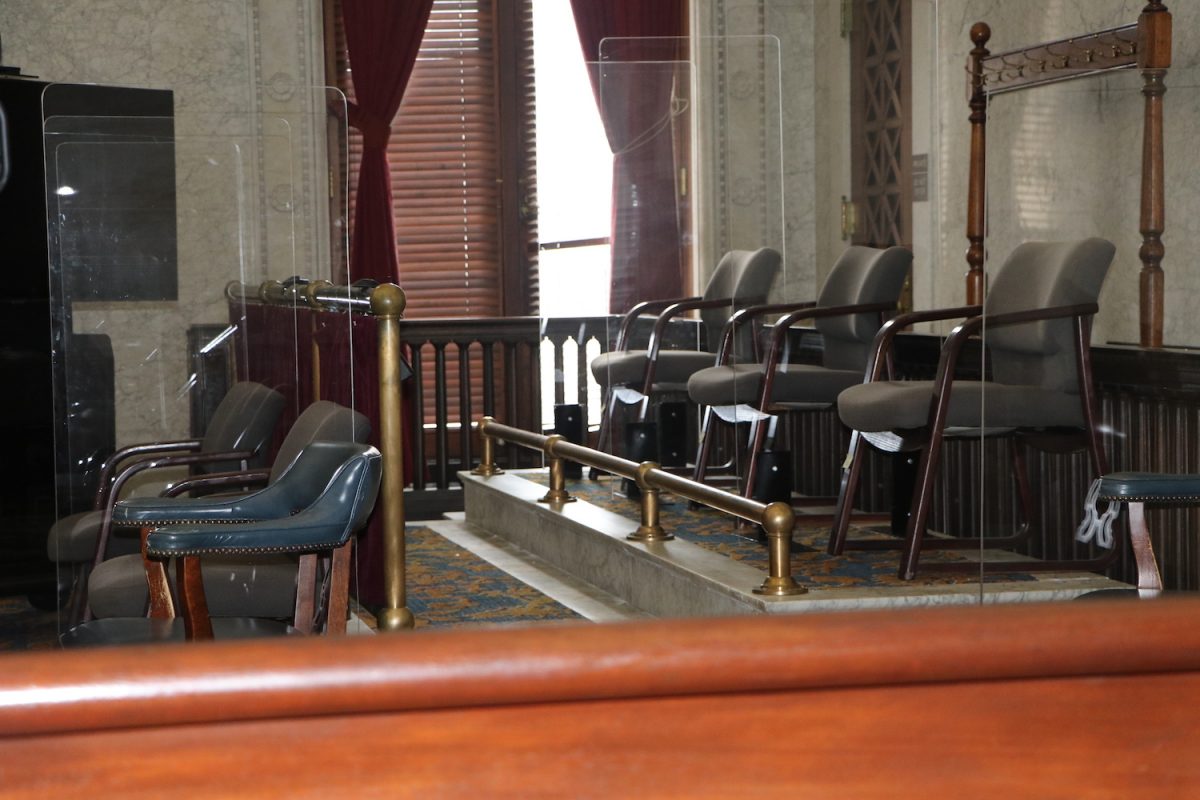
Thank you for reading Baltimore Witness. Help us continue our mission into 2024.
Donate NowBy
Andrew Michaels
- March 29, 2023
Court
|
Daily Stories
|
Homicides
|
Juveniles
|
Suspects
|
Victims
|
Sitting in the courtroom wearing a black floral top and red sweatpants, 33-year-old Stefanie Colon looked up at the ceiling as a Baltimore City prosecutor described the defendant’s role in the death of 15-year-old Hezekiah Pettiford.
Pettiford, who was a high-functioning autistic child, was raised by his maternal grandmother, the prosecutor explained, and on Oct. 17, 2019, he went to live with Colon and her husband, Dion Ball, who is also charged separately for this incident.
About four months later, Pettiford had a wellness appointment, with the doctor reporting no overall concerns. However, by the time of his death on Jan. 26, 2021, the child showed signs of malnourishment, weighing 77 pounds, and abuse.
“This is a case about a child who was forgotten,” the prosecutor told jurors during opening statements on March 21. “This is a case about a child who wasn’t safe. This is a case about a child who was failed.”
Baltimore Police were called to the residence on the 800 block of McAleer Court around 3:00 p.m. after a 911 caller reported Pettiford was not breathing. The prosecutor said a Baltimore City firefighter was among the first to arrive and ran upstairs, picked Pettiford up, and took him outside to medics who were able to find a weak heartbeat and incubate the boy.
Further examination at Johns Hopkins Hospital revealed Pettiford was suffering brain damage “to the point it was shutting down his organs,” the prosecutor said. The child was also covered from head to toe with injuries—some fresh, some healing, and some scars.
Pettiford was pronounced brain-dead the following day and was removed from life support.
A photo from Pettiford’s autopsy on a TV screen in front of the jury, the prosecutor explained that during her phone calls from jail, Colon admitted to her father and others that she saw the bodily harm Ball inflicted upon Pettiford over several occasions. During one such incident, Colon allegedly saw Ball stomp on Pettiford’s head, pick him up, shake him, and throw him to the ground.
After witnessing these acts, the prosecutor said, Colon went to bed.
There was also another incident when Colon and Ball allegedly tried to wake Pettiford up for school, placing their arms under his arms to make him stand. However, when they were unsuccessful, they put Pettiford on the couch.
“When you take a living being—a cat, dog, or goldfish—into your home, you can’t forget that living being,” the prosecutor said. “You can’t forget to intervene when it means it most. This wasn’t just a living being—this was a 15-year-old boy with special needs.”
Following the prosecution’s opening statement, defense attorney William Buie III argued that it was the government “that dropped the ball and now they want to put it on Ms. Colon.” Buie later blamed the Department of Social Services for placing Pettiford where he did not belong.
“My client’s not the mom, not the guardian,” said Buie, who explained that others were living in the residence besides Colon. “Just because you’re charged by the government because they say you did something, it doesn’t mean you did it.”
The prosecution then called the responding firefighter to the stand and played the 911 call for the jury.
Earlier in the proceedings, Judge Martin H. Schreiber, who is presiding over the trial, informed the jurors that the trial will likely conclude on March 23 or March 24.
Follow this case